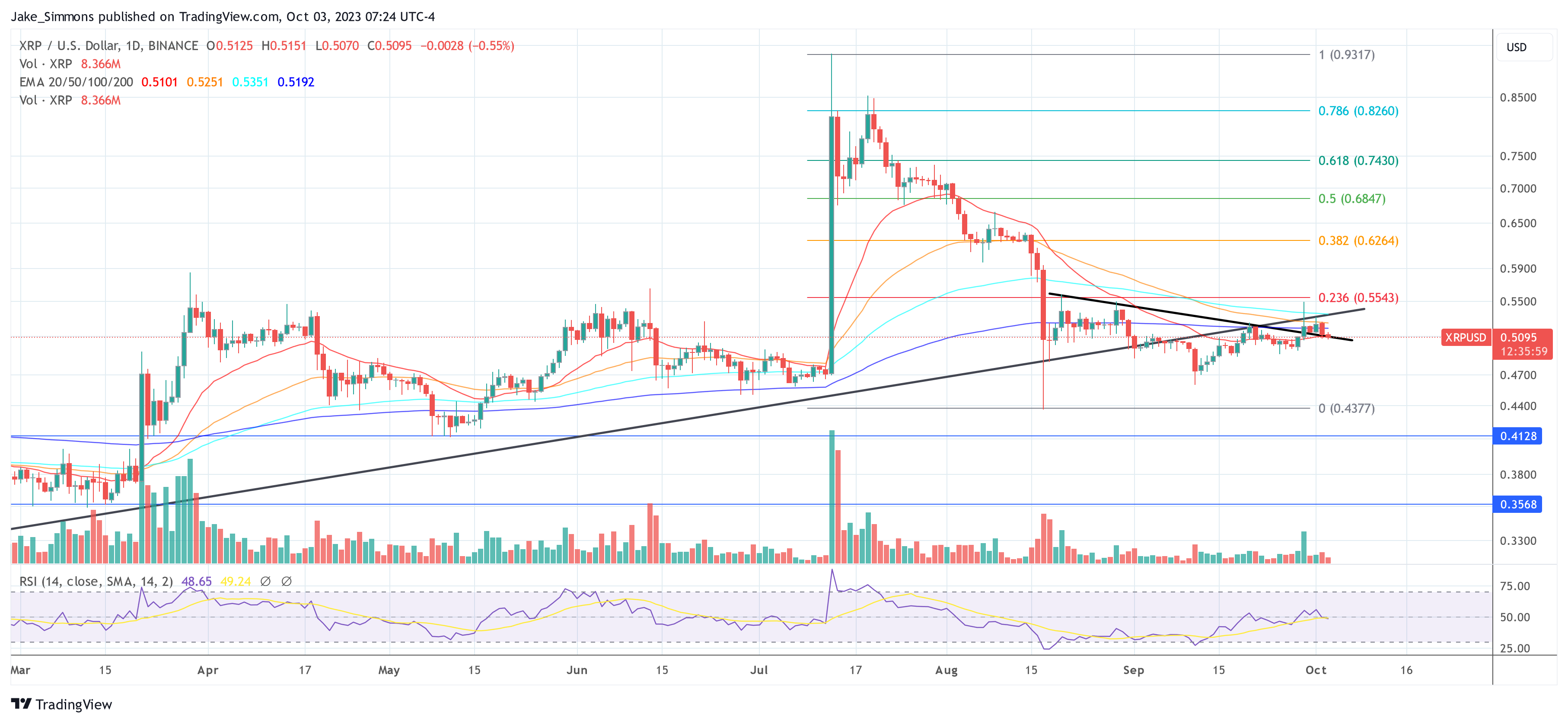The RippleX team, Ripple Labs’ development arm, yesterday shed light on a new feature proposal, the “Clawback” for the XRP Ledger (XRPL). As the crypto space awaits the potential inclusion of this feature in the rippled 1.12.0 release, the blockchain community has set its eyes on how this addition might reshape asset controls on the XRPL.
A Deep Dive Into Clawback And Trustlines
Yesterday, RippleX tweeted, highlighting the proposal: “Clawback is a newly proposed feature that aims to augment the XRP Ledger’s token asset control capabilities. If the XLS-39 Clawback feature is adopted, it could empower developers with heightened trust and safety parameters for their issued assets.”
The key takeaway from this proposal is the ability for issuers to reverse transactions under special circumstances, such as fraudulent activities or aiding users who’ve lost access to their respective accounts.
The proposed Clawback feature, if adopted, would complement the existing Freeze feature. Both of these mechanisms are rooted in the concept of Trustlines. For those unfamiliar, Trustlines play a pivotal role in the XRPL’s asset management. Acting as a barrier, they prevent spamming activities by disallowing users from sending unsolicited tokens to others. Essentially, Trustlines ensure that only authorized transfers take place within the XRPL.
Further clarification provided by RippleX explains how Trustlines function: “Authorized Trustlines enable an issuer to determine which accounts may hold or receive a particular issued asset. This is crucial, given the diversity in projects and the geographical spread of issuers and their user bases.” By extension, the potential inclusion of Clawback could bolster the robustness of the XRPL’s asset control framework.
Ripple CTO Schwartz Weighs On On The Debate
David Schwartz, Ripple’s CTO, provided a more nuanced perspective in response to the tweet. He elucidated the primary use case of the Clawback feature, stating, “Assets that symbolize genuine legal obligations stand to benefit most from this feature. For instance, a stablecoin redeemable by its issuer in cash.”
While the Freeze feature has its merits, Schwartz was keen to emphasize the subtleties that distinguish it from Clawback. Freeze, in its essence, is absolute; it’s a binary feature allowing an issuer to halt an asset entirely. On the other hand, Clawback offers more granularity. As Schwartz puts it: “Freeze is the nuclear option. Clawback enables surgical strikes.”
But with every tool comes the responsibility for its usage. Schwartz, while supporting the feature, also laid out potential concerns. He opined: “A surgical tool, by its very nature, minimizes collateral fallout. But this very precision might make it an attractive option for issuers, even in scenarios where it might be deemed overkill. The broader implication is that while Freeze serves as a deterrent due to its sweeping impact, Clawback, being less intrusive, could be employed more frequently.”
In addition to the technicalities of the feature, Schwartz also reflected on the competitive landscape of blockchain platforms. He pointed out that most blockchains supporting stablecoins already incorporate a version of the clawback feature.
Schwartz highlighted, “Not integrating such a feature could inadvertently create hurdles. Stakeholders interfacing with stablecoins on the XRPL would be dealing with procedural inconsistencies. For entities like auditors or financial institutions, which rely on standardized processes, this could introduce unwarranted complexity and friction.”
At press time, XRP traded at $0.5095.
